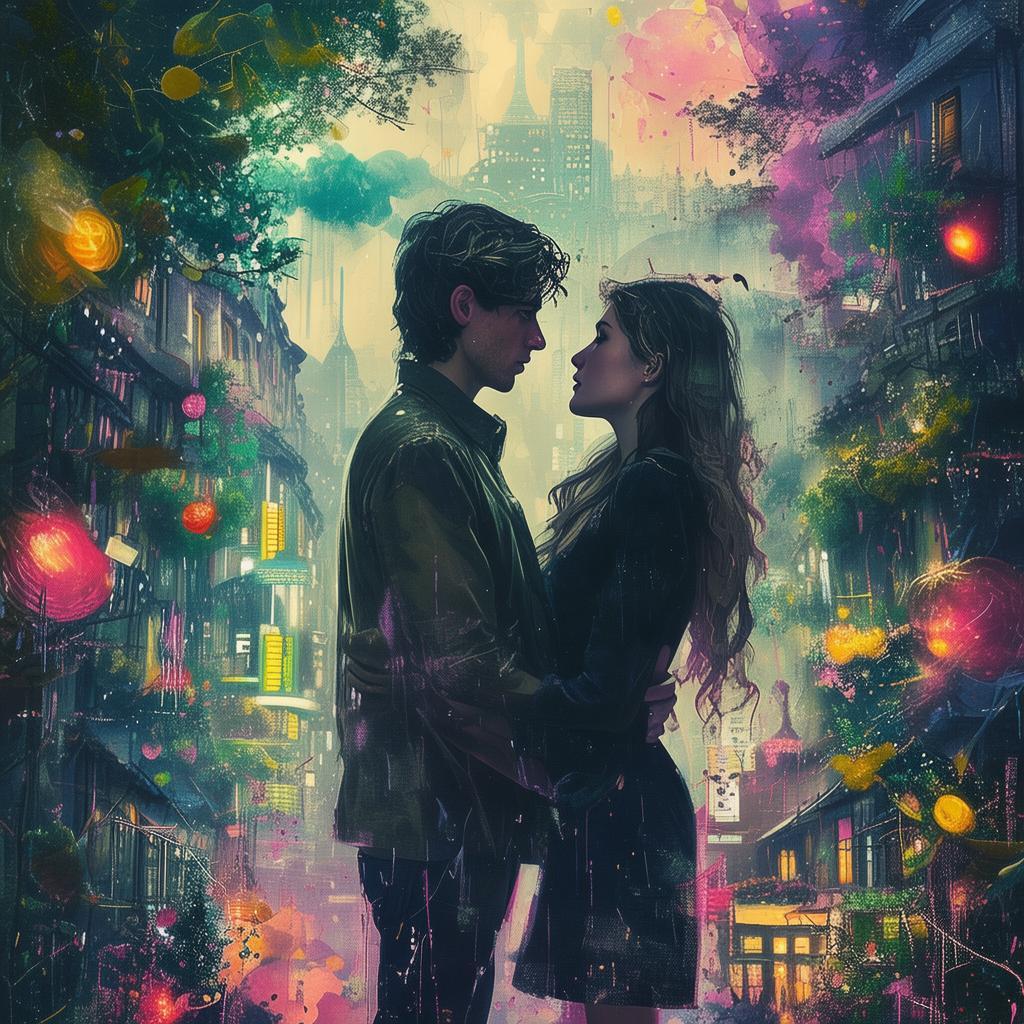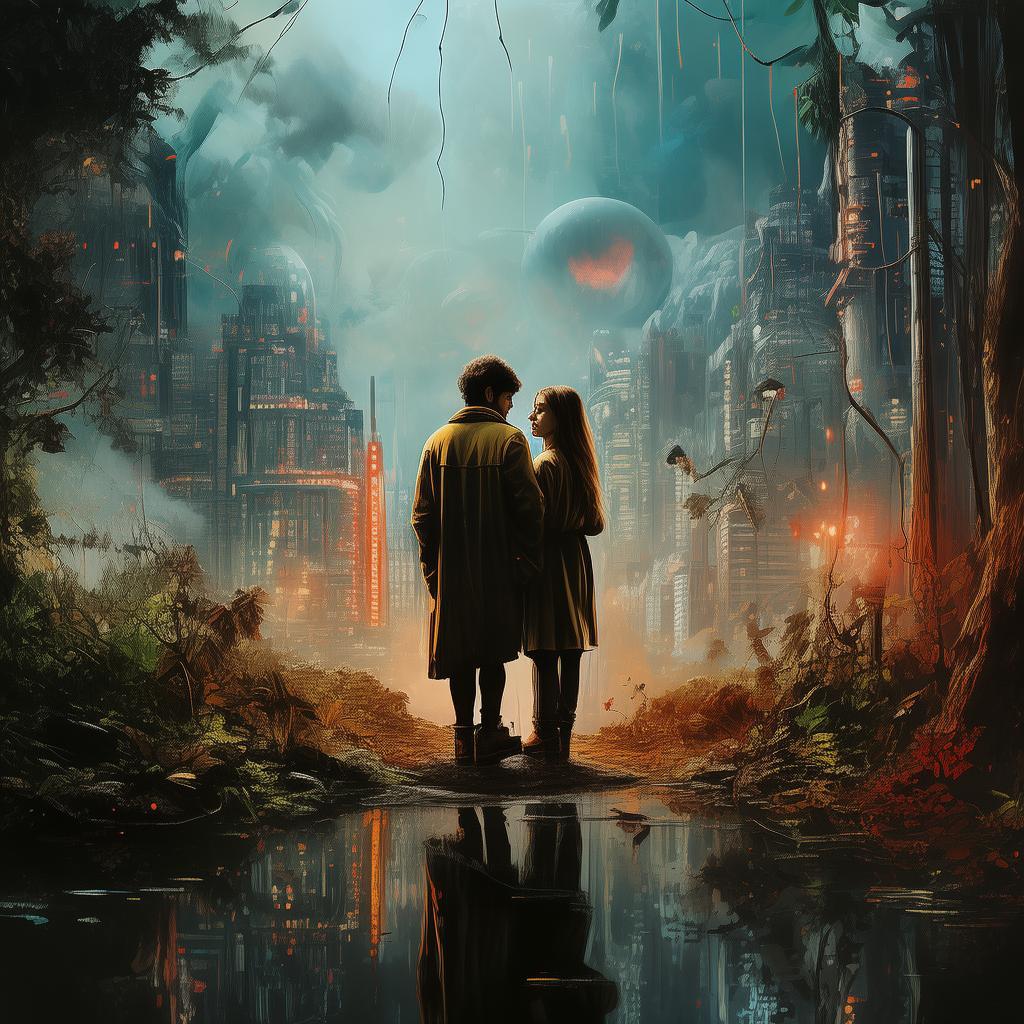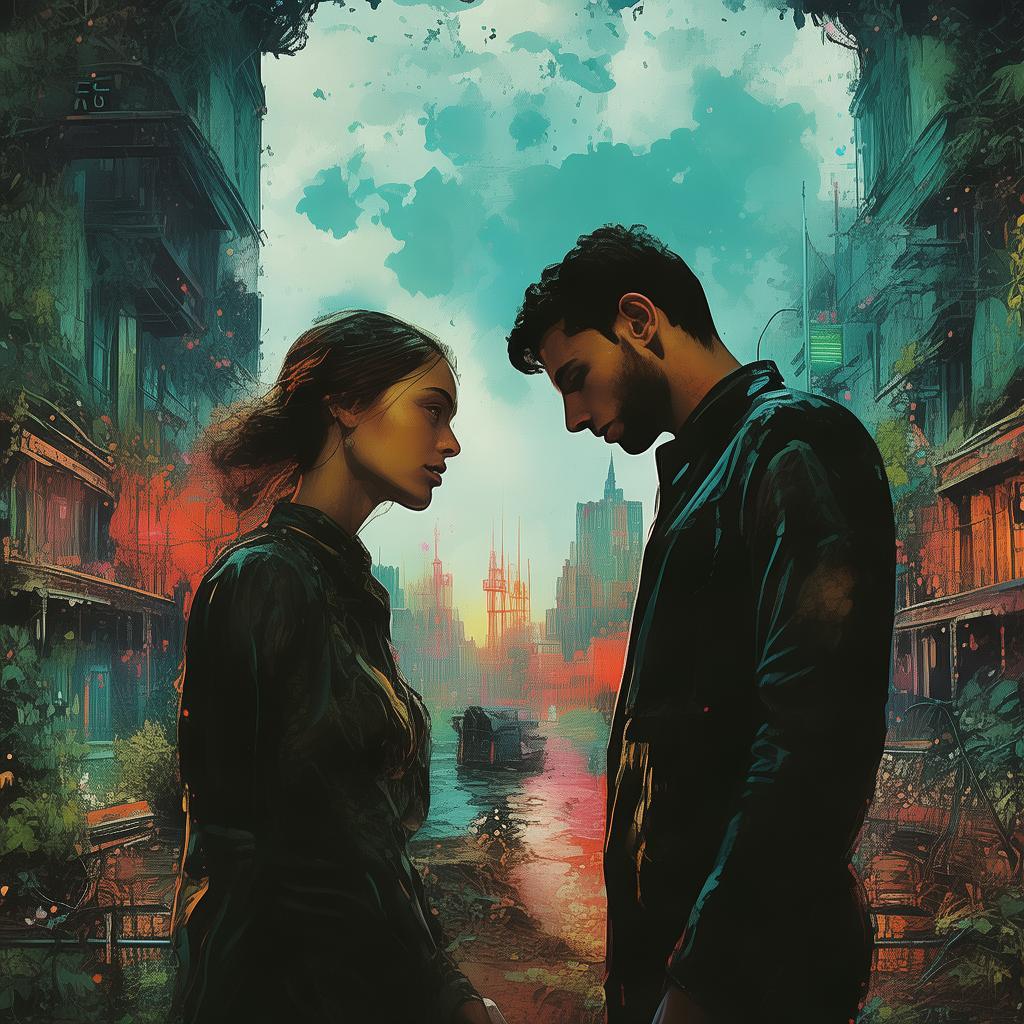The Lamenting Harvest: A spectral bond in the golden fields
In the heart of the golden fields, where the wheat swayed gently under the autumn sun, there lay a tale as old as the earth itself. It was a story of love, loss, and the unyielding power of the human spirit to transcend the bounds of life and death.
The story began with two young lovers, Elara and Finn, whose lives were woven into the very fabric of the land. They were as inseparable as the wheat that grew in the fields they tended. But fate, with its cruel and unpredictable hand, dealt them a harsh blow. Finn was struck down by a sudden illness, leaving Elara in a paralyzing grief.
As days turned into weeks, Elara's grief became so profound that it seemed to touch the very soul of the earth. The fields, once vibrant and full of life, began to wither, their golden hues fading to a dull brown. The villagers spoke in hushed tones of the haunted harvest, a phenomenon that seemed to mirror Elara's sorrow.
Elara's spirit, unable to bear the pain of her loss, wandered the fields, her heart heavy with a love that had withered away like the crops. She spoke to the wind, to the wheat, to the very ground itself, but no answers came. She was trapped in a world of shadows, her love for Finn becoming a ghostly echo in the fields.
Then, one day, a mysterious figure appeared in the fields. He was a traveler, a man with a lantern in hand, his eyes filled with a knowing that seemed to transcend time. He approached Elara, and in a voice that seemed to come from everywhere and nowhere, he spoke of a love that spanned lifetimes.

Elara, weary and despondent, listened to the traveler's tale of a love that had endured across the ages, a love that had found a way to bridge the gap between life and death. The traveler spoke of a love that was so strong that it could break through the barriers of the afterlife, a love that could be felt even in the fields where Elara wandered.
Intrigued and heartened, Elara followed the traveler deeper into the fields, where he led her to a hidden glade. There, in the heart of the wheat, stood a statue of Finn, his eyes forever fixed on the horizon. The traveler explained that this statue was a beacon, a reminder of the love that had once flourished in the fields.
As Elara approached the statue, she felt a strange connection, as if the very wheat around her was breathing with the memory of her love. She reached out to the statue, her fingers brushing against the cold stone, and in that moment, she felt a surge of warmth.
The traveler revealed that Finn's spirit had not left the fields. It was bound to the love that had once filled his heart. Elara needed to confront her grief, to release the love that was holding her spirit captive. Only then could she reunite with Finn, and the fields could once again flourish.
Elara spent days in the glade, speaking to Finn's statue, pouring out her heart in a love that was both real and spectral. She spoke of their time together, of the laughter, the joy, and the love that had made their hearts whole. She spoke of her pain, of the void left by his absence, and of the love that had become a ghostly presence in the fields.
As the autumn turned to winter, Elara's spirit began to change. The fields, once lifeless, started to come back to life. The wheat turned a deeper golden hue, and the air was filled with the scent of blooming wildflowers. The villagers spoke of the return of the haunted harvest, but this time, it was a celebration of love, not a lamentation.
On the day of the first snowfall, Elara stood before the statue, her heart full of resolve. She spoke her final goodbye, a release of the love that had bound her spirit to the earth. As she did, the statue of Finn began to glow, and in a moment of pure magic, Elara's spirit was freed.
She saw Finn, not as a statue, but as the man he had been in life. They stood together, their hands intertwined, in a love that had transcended time and space. They walked through the fields, past the wheat that had once withered, into a future that was as bright and full of life as the day they had first fallen in love.
The fields, now filled with the joy of the harvest, continued to flourish, a testament to the love that had once been lost and now found. The villagers spoke of the legend of the haunted harvest, but it was a story of love, not sorrow, that they shared.
And so, the fields became a place of celebration, a place where love could be found even in the face of loss, where the boundaries between life and death were blurred, and love remained the ultimate triumph.
✨ Original Statement ✨
All articles published on this website (including but not limited to text, images, videos, and other content) are original or authorized for reposting and are protected by relevant laws. Without the explicit written permission of this website, no individual or organization may copy, modify, repost, or use the content for commercial purposes.
If you need to quote or cooperate, please contact this site for authorization. We reserve the right to pursue legal responsibility for any unauthorized use.
Hereby declared.









